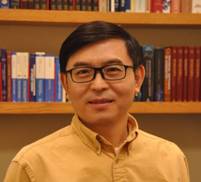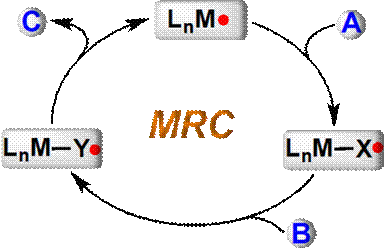主讲人: X. Peter Zhang
时间: 2018年6月2日上午10:00
地点: 深圳大学西丽校区B1-420

报告摘要:
Organic synthesis has been dominated by thedevelopment of chemical reactions that are based on two-electron heterolyticionic processes, either stoichiometrically or in catalytic fashion. Whileone-electron homolytic radical chemistry is equally rich and has beendemonstrated with a number of unique features, its application in practicalsynthesis of organic molecules has been hampered by several enduringchallenges. Over the past decade, my laboratory has been in the process offormulating “Metalloradical Catalysis” (MRC) as a general concept to guide thedevelopment of fundamentally new approaches for controlling both reactivity andstereoselectivity of radical reactions. In essence, metalloradical catalysisaims for the development of metalloradical-based systems for catalyticgeneration of carbon- and nitrogen-centered radicals from common organiccompounds without the need of radical initiators or the use of light. Thesubsequent reactions of the resulting organic radical intermediates, whichremain covalently bonded to the metal center, can be selectively controlled bythe catalyst. For achieving enantioselective radical reactions via MRC, we havedeveloped a family of unique chiral metalloradical catalysts based onstructurally well-defined Co(II) complexes of D2-symmetric chiral porphyrinswith tunable electronic, steric, and chiral environments. These Co(II)-basedmetalloradical catalysts have been shown to be highly effective for a widerange of stereoselective organic reactions, including olefin cyclopropanation,olefin aziridination, C–H alkylation and C–H amination. Due to theirdistinctive radical mechanisms that involve unprecedented -metalloalkyl and-metalloaminyl radical intermediates, the Co(II)-based metalloradical systemsenable addressing some long-standing problems in theseimportant organic transformations.

报告人简介:
PeterZhang received his Ph.D. degree from the University of Pennsylvania in 1996under the direction of Prof. Bradford Wayland. He then undertook postdoctoralwork at the Massachusetts Institute of Technology (MIT) as a NationalInstitutes of Health (NIH) Postdoctoral Fellow during the period of 1996–2001,first with Prof. Stephen Lippard and then with Prof. Stephen Buchwald. Dr.Zhang began his independent career as Assistant Professor of Chemistry at theUniversity of Tennessee in 2001. He moved to the University of South Florida asAssociate Professor of Chemistry in 2006 and was promoted to Professor ofChemistry in 2010. In 2015, Dr. Zhang joined Boston College as Professor ofChemistry. His research and education activities have been recognized withseveral awards, including the NSF CAREER Award.
欢迎有兴趣的师生参加!
